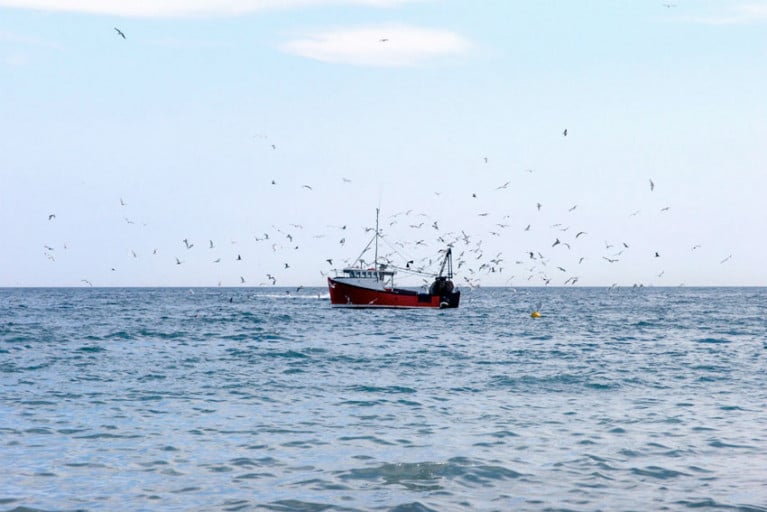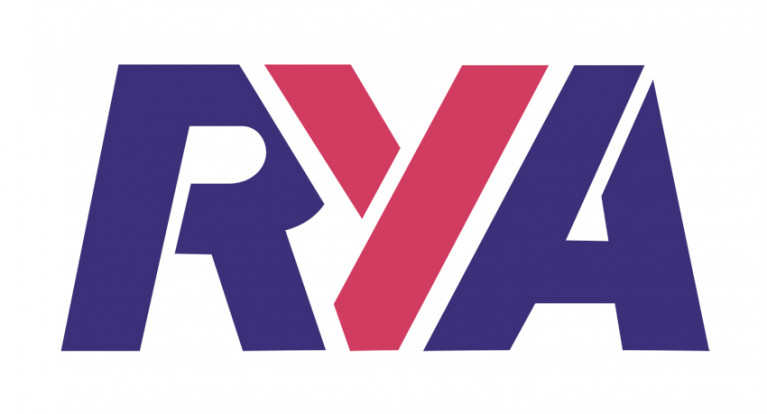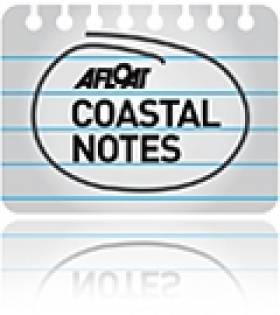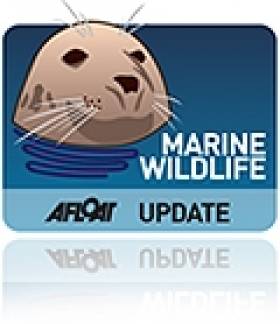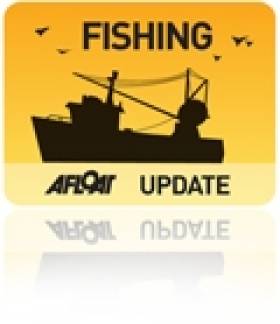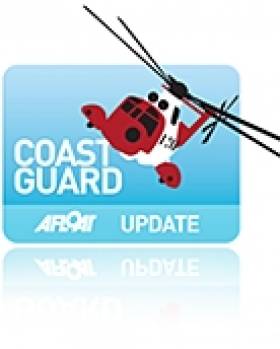Displaying items by tag: England
Boaters looking to cruise the inland waterways of Scotland and England are advised of low water levels in canals and rivers across Great Britain.
The Canal & River Trust, Environment Agency and Scottish Canals have recently circulated updates to all boaters warning of low water levels in parts of Scotland, the north of England and the Thames.
Having already closed some locks temporarily and introduced reduced operating times in place on several other waterways, the Canal & River Trust is taking action to manage the very low water levels in the north of England.
However, it says further difficult decisions are now needed to conserve water. It is reported that additional temporary closures will be needed in August unless there is a significant improvement in water levels.
A combination of a dry spring that has continued into a hot, dry summer and essential reservoir repairs taking place across the region meant that the amount of available water was already less than usual, causing water supplies in the north to drop to historically low levels.
Although water management has been operation in some locations since the start of April and despite volunteer lock keepers helping to manage boat traffic at lock flights to ensure water supplies are used as efficiently as possible, the lack of rain has meant the reservoirs have not had a chance to refill and there is not enough water to supply the canals, the trust says.
It is now asking boaters across the country, with the help of volunteer lock keepers, to be even more careful than usual to conserve water. Boaters can help by sharing locks where possible and making sure paddles are fully closed after use.
To find out about stoppages and water levels affecting navigation, visit the Canal and River Trust website.
In Scotland, water reserves are also coming under pressure on the Lowland Canals with leakage issues through and around a number of historic lock gates on the Forth & Clyde Canal, compounding the issue.
The Scottish Canals operational team says it is struggling to maintain water levels at a number of locations, in particular on the eastern side of the canal between Lock 16, Camelon and The Kelpies.
All unnecessary trips through the Falkirk flight are currently being restricted, since noon last Tuesday 19 July. This will affect mainly holiday hire boats and leisure boats visiting The Kelpies for an overnight stay. Sea-to-sea transits will be maintained and should be booked through the boat movements team as normal. Scottish Canals says the restriction will be lifted as soon as it is safe to do so.
Water levels are also a concern in England’s southeast, with the Environment Agency asking users of the non-tidal Thames to make sure locks are as full as possible when used to save water.
Some parts of the upper Thames are already experiencing very low flows, especially in backwaters and tributaries. Above Iffley Lock the agency cannot guarantee the navigation channel will always be sufficiently deep for craft with a draft of 0.9m or more. And it warns that it may become necessary to close locks outside of normal lock-keeper hours of duty.
The aim is to avoid emptying locks unless they contain at least one boat as a considerable volume of water is released downstream each time a lock is used, the EA says. It is also encouraging boaters to plan ahead to minimise the use of locks along their journey.
See the ‘Information for boaters’ section of the EA website for updates, and subscribe to get advised of any Thames river restrictions and closures by emailing [email protected].
The RYA adds that there are expected to be further warnings for low water levels in these and other areas in the coming weeks. Boaters using the inland waterways are encouraged to plan ahead and to check local water reports before travel.
More than 1,000 fishing and aquaculture businesses in England will receive direct cash grants through a fisheries support scheme announced today (Friday 17 April).
The plans will see up to £9 million available for grants to eligible fishing (with vessels of under 24 metres) and aquaculture businesses.
A further £1 million will be made available to support projects to assist fishermen to sell their catch — including mainly export stocks such as hake, scallops and crab — in their local communities while traditional markets abroad and in the hospitality sector are restricted.
The support scheme, which will run for up to three months, intends to meet the immediate needs of the industry by helping English fishing and aquaculture businesses with their fixed costs such as such as insurance, equipment hire and port costs.
Details of the eligibility criteria and how funds will be administered will be revealed shortly by the Marine Management Organisation (MMO).
“This £10 million scheme will provide a lifeline for more than 1,000 fishing businesses so they can continue to maintain and operate their boats during this challenging time, which has seen falling prices and lack of demand for fish from the restaurant industry,” said UK Environment Secretary George Eustice.
Chief Secretary to the Treasury, Steve Barclay MP, added: “Fishing is at the heart of many of England’s coastal communities — providing local jobs as well as valued produce to their communities and through exports around the world.
“Given the loss of trade particularly to restaurants as a result of Covid-19, this support will help fishing businesses weather the current challenges they face, and facilitate new growth in retail markets through innovative local distribution.”
MMO chief executive Tom McCormack said the organisation will “continue to engage with an listen to industry to ensure we’re supporting our fishing industry in the right ways”.
He also encouraged the seafood and fisheries sectors to apply for the existing support available for businesses, including the Coronavirus Business Interruption Loan Scheme and the Coronavirus Jobs Retention Scheme.
Meanwhile, the UK Government is in talks with national fisheries authorities in Scotland, Wales and Northern Ireland exploring methods to reduce the regulatory burden on the fishing fleet. These measures will be agreed jointly by the fisheries administrations and announced in due course.
Sailing clubs and centres in England are already beginning to benefit from the £22 billion grant and business rates package recently announced by the Chancellor Rishi Sunak, the RYA says.
Businesses in the retail, hospitality and leisure industry, such as RYA-affiliated sailing clubs and recognised training centres, will be eligible for a one-off grant payment dependant on their rateable value.
Those with a rateable value of less than £15,000 will receive £10,000 and those clubs with a rateable value of between £15,000 and £51,000 will be provided with a grant of £25,000.
Business rates in England have also been suspended for the next 12 months — though devolved administrations in Wales, Scotland and Northern Ireland set their own rates, and their measures if any may involve a reduction rather than a suspension.
It is understood that local authorities may be contacting businesses either via letter or by email this week. As the clubhouse is usually the registered business address for sailing clubs, this may cause a delay in receiving notification due to the current travel restrictions.
The RYA suggests that sailing clubs and training centres should contact their local authority and ask for any communication to be sent via email instead, or for any essential letters to be temporarily re-directed to a more convenient address.
New Observation Tower Will Give Views of the Irish Sea
#COASTAL NOTES - BBC News reports that construction has begun on a new observation tower on the Lancashire coastline with views over the Irish Sea.
The new tower at Rossall Point, which will reach 14 metres (46ft) upon completion, will act as a base for the UK's National Coastwatch Institution.
A platform at the top will be open to the public providing ample vistas of the Irish Sea's marine wildlife for birdwatchers and more, while the view from the top will also be projected on a screen in the education centre to be located in the tower's ground floor.
Irish Sea Far From 'Dirty, Lifeless' Says New Website
#MARINE WILDLIFE - The UK's Wildlife Trusts have launched a new website in an effort to redress the idea that the Irish Sea is "a dirty, lifeless" place.
As BBC News reports, the trusts' Cheryl Nicholson put down the Irish Sea's poor image, saying "nothing could be further from the truth".
"Our sea is home to so many amazing species and habitats," she added, "but sadly, after centuries of neglect, it is not in a good state. We must act now to protect the Irish Sea from the depths through to the coastal shallows."
The new website is part of a campaign by wildlife trusts throughout northwest England, Wales, Northern Ireland and the Isle of Man to establish 15 Marine Conservation Zones recommended for the area.
The zones, if officially designated, would provide "a haven for wildlife to recover and thrive", said Nicholson.
As previously reported on Afloat.ie, plans to establish such zones in the Irish Sea have been shelved till 2013 at the earliest after pressure from fishermen, boaters and other groups.
BBC News has more on the story HERE.
Young Bundoran Surfer Joins Northcore Stable
#SURFING - Irish surfer Conor Maguire is one of the four new waveriders from the UK and Ireland to become part of the Northcore stable. In the vid below Maguire is mentioned at 2 minutes 11 seconds.
The Bundoran resident joins Sandy Kerr of Tynemouth, England, Craig Burrows of south Wales and Jersey's Charlotte Bayliss on the team heading into 2012.
The young surfer is already making a name for himself on the heavy waves of Ireland's northwest coast like the Peak, and regularly paddling into the meanest of Ireland's slabs such as Rileys.
Maguire is also starting to charge in the big swells, learning the tow-in craft from some of Ireland's most experienced big wave crews, including Northcore ambassador Richie Fitzgerald.
A Northcore spokesperson said of the recent additions: "Between them there's a huge amount of experience, style and skill. All of the riders are representing the very best of surfing talent from their respective home locations and all have achieved respect and recognition on a national scale."
Cumbrians Urged to Try New Fish to Save Irish Sea Stocks
#FISHING - Seafood lovers of Cumbria in north-west England have been urged to broaden their tastes to save depleted stocks of their favourite fish in the Irish Sea.
According to the News & Star, some 80% of Britons "insist upon eating just five types of fish – cod, tuna, salmon, prawn and haddock."
But the Cumbria Wildlife Trust says that with coastal waters facing the serious threat of overfishing, a rethink is needed among both consumers and suppliers alike.
“The Irish Sea has a wide range of edible fish species but you wouldn’t know it judging by the fish counters in supermarkets across the county," says Lindsay Sullivan of the trust's Wild Oceans project, an 18-month scheme that hopes to "turn the tide for seafood".
A big part of this is encouraging consumers to skip the usual white fish and try different species such as flounder, monkfish and red mulllet, creating demand for cheaper and more sustainable fishing.
The News & Star has more on the story HERE.
British Coastguard Fears Loss of Choppers
The union representing coastguard staff in the UK has expressed its fears over the loss of air rescue services when a number of helicopters are transferred to Ireland next year.
Under CHC's €500m contract to provide search and rescue services for the Irish Coast Guard, four helicopters will be withdrawn from England and Scotland for redeployment in Ireland.
However, HeraldScotland reports that the Maritime and Coastguard Agency (MCA) has no plans to replace these helicopters, which separately service Scotland's Isle of Lewis and Shetland Islands as well as the Solent and Portland in England.
The recent collapse of the privatisation deal for UK search and rescue services has meant there is no new operator lined up to replace CHC.
Jeremy Gautrey of the PCS union said that the situation "has now potentially left the coastguard service stranded without the guarantee that it will have sufficient helicopters to carry out search-and-rescue operations when the current helicopters retire."
HeraldScotland has more on the story HERE.
Proposed Irish Sea Conservation Zones
The area include the inshore waters of Merseyside, Lancashire and Cumbria and offshore waters of the Isle of Man, Wales, Northern Ireland and England. One of the zones is a 187 square km stretch of deep water between Northern Ireland and the Isle of Man.
In order to gain a greater understanding of the proposed zones, the report commissioned a Regional Stakeholder Group which drew from a diverse range of interests in the Irish Sea. Among the stakeholders included were the Royal Yachting Association, the fishing community and ports authorities. The review identified the size, shape and locations of the proposed 10 ten new Marine Conservation Zones. For the first time, the zones included inshore water of the Irish Sea project area as well as offshore.
"This is a real milestone for the project, with potential Marine Conservation Zones identified in both inshore and offshore waters", said Greg Whitfield, project manager at Irish Sea Conservation Zones.
"It is now really important that people take a look at the potential zones and give us their feedback on them. The better the information we have, the better the Marine Conservation Zones that are recommended by the regional stakeholder group will be."
Each of the marine conservation zones are designed to protect nationally important marine wildlife, habitats and geology. In addition they are designed to have the least impact possible on people's activities, but some restrictions will apply as the zones must meet guidelines for protecting species and habitats.
Members of the public are being invited to participate and will be considered as the second project continues to refine its proposals. The report is only a snapshot of the work so far. It does not contain concrete recommendations for the locations of Marine Conservation Zones (MCZ) in the Irish Sea, and the potential zones shown in the report are described as tentative and liable to change.
The Irish Sea Conservation Zone project will be releasing a third report before the Regional Stakeholder Group finalises its recommendations. The reports are delivered to the Science Advisory Panel. The independent body is comprised of expert scientists whose main role is to evaluate the potential of MCZs against ecological criteria.
The third progress report will be made available in February 2011. Its final recommendations will then be presented to the UK government in June. Following that a formal public consultation on the proposed MCZs are to take place in late 2011 and early 2012.
For information on the Second Progress Report including feedback forms can be downloaded from HERE or by calling 00 44 (0)1925 813 200


























